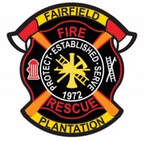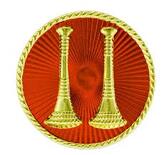After The Fire!The U.S. Fire Administration has gathered the following information for community members who experience a home fire. “After the Fire” provides information on recovering from a fire, including what to do during the first 24 hours, insurance considerations, valuing property, replacing documents, salvage hints, fire department operations and more. Follow the link below for more information on the FEMA provided "After The Fire" documents.
FEMA: After The Fire! What To Expect A fire in a home can cause serious damage. The building and many of the things in your home may have been badly damaged by flames, heat, smoke and water. You will find that things the fire did not burn up are now ruined by smoke and soggy with water used to put out the flames. Anything that you want to save or reuse will need to be carefully cleaned. The firefighters may have cut holes in the walls of the building to look for any hidden flames. They may even have cut holes in the roof to let out the heat and smoke. Cleanup will take time and patience. Use Caution It is important to understand the risk to your safety and health even after the fire is out. The soot and dirty water left behind may contain things that could make you sick. Be very careful if you go into your home and if you touch any fire damaged items. We ask that you please check with the officer in charge of the operations going on at your home. The officer is generally the one wearing either the red or the white fire helmet. Do not attempt to enter your house until that officer indicates that it is safe to do so. For your safety, you may be escorted into the building by a firefighter. Take Care of Yourself and Family Contact your local disaster relief service, such as the American Red Cross or the Salvation Army. They will help you find a place to stay and to find food, clothing and medicine. Make sure that you have a safe place to live temporarily. You have a big job ahead of you. Get plenty of rest, and ask for help. Do not try to do it all alone. Do not eat, drink or breathe in anything that has been near the flames, smoke, soot, or water used to put the fire out. Contact Your Insurance Agent Contact your insurance company right away. Ask what to do about the immediate needs of your home. This includes pumping out water and covering doors, windows and other openings. Ask your insurance company what to do first. Some companies may ask you to make a list of everything that was damaged by the fire. They will ask you to describe these items in detail and say how much you paid for them. If you do not have insurance, your family and community might help you get back on your feet. Organizations that might help include: • American Red Cross. • Salvation Army. • Religious organizations. • Public agencies, such as the public health department. • Community groups. • State or municipal emergency services office. • Nonprofit crisis-counseling centers. Frequently Asked Questions About Fire Department Actions Q: Why did firefighters break windows and cut holes in the roof? A: As a fire burns, it moves up, down and across, growing very fast. Breaking windows and cutting holes in the roof is called ventilation. This slows the fire’s growth. It helps get rid of dark smoke that makes it hard for firefighters to see. It helps them fight the fire more quickly. In the end, ventilation can help save lives and property. Q: Why do firefighters cut holes in walls? A: Firefighters may cut holes in the walls to make sure that the fire is completely out and not hidden in the walls. Q: How can I get a copy of the fire report? A: You can obtain a copy of the fire report by contacting us through the Contact page on this website or by emailing the Fire Marshal at [email protected] Vertical Divider
|


